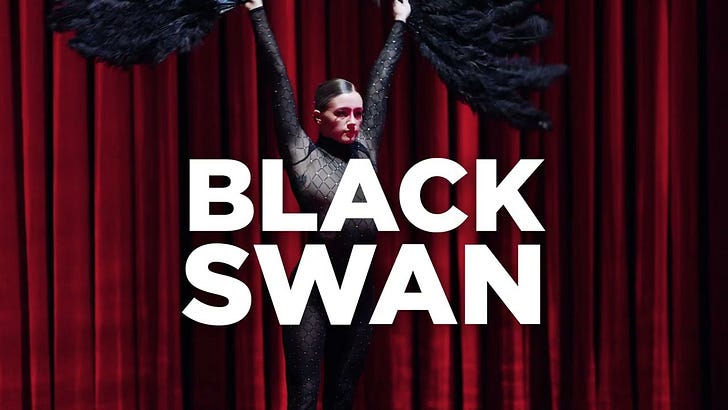Natasha, Pierre & the Great Comet of 1812 / Duck Pond
Donmar Warehouse / Royal Festival Hall December 2024
Though pantomimes keep a stranglehold on Britain into January, intrepid viewers can usually track down less predictable entertainment, and these London events wiped fairy-tale fantasies clean out of my head.
Imagine squeezing War and Peace into a two-hour play. Difficult, right? OK, imagine squeezing some of the novel’s characters and encounters into a through-composed musical without dialogue. Or video projections. Or program notes.
First produced off-off-Broadway in 2012 and now packing the tiny Donmar Warehouse, Natasha, Pierre & the Great Comet of 1812 does just that, relying on the cast’s energy and your not-too-critical attention to sustain the simplistic result.
Dave Malloy’s music, lyrics, and book deal only with the 70 pages of Tolstoy’s literary masterpiece that focus on Natasha Rostova’s fall from innocence and the search for a moral way of life by Pierre Bezuhkov, who fears, as he puts it, that he’s squandering his divinity.
Malloy might hope you discover the full sweep of human experience in their emotional and philosophical realizations. I missed all that. After the opening number, when the ensemble warns, “It’s a complicated Russian novel / Everyone’s got nine different names / So look it up in your program,” I was struggling to pry the lyrics out of the amplification and the characters out of their sketchy outlines.
Unfortunately, those lyrics were often indistinguishable unless you’d memorized the album. And for the effort of locating them, Malloy rewards you with exposition,“In 19th-century Russia we wrote letters,”and stage directions, “Pierre closed the door and addressed Anatole without looking at him.”
Having rejected grandeur, pathos, aristocrats and even a whiff of war, Malloy chose to fashion an adolescent fever dream, a cross between The Rocky Horror Show and Romeo and Juliet. It’s set on a blank, black stage beneath gigantic letters spelling M SCOW and costumed in a punk mix of charity-shop glam and Doc Martens. The score flits speedily from Russian folk rhythms to aggressive pop to electronic club music; in Maimuna Memon’s touching rendition, only Sonya’s ballad about her friendship with Natasha sounded dramatically convincing.
Ellen Kane’s choreography starts strong, but its impact gradually fades. The explanatory Prologue introduces the characters in a cumulative list, like “The Twelve Days of Christmas,” that Kane animated with a mocking gesture for each name. The cast raced through it as if running for a train, and after that we were on our own.
Enlivening songs that neither rhyme nor scan, Kane created a slow seductive duet for the opera Natasha attends as she’s falling in love; a duel fought precariously by antagonists who hang from one wrist like trapeze artists; and a drunken waltz, an orgy of feather fans and upended vodka bottles.
A ghostly bride and groom slip through the action silently, reenforcing the skimpy theatricality that distanced us from the characters and the characters from each other. Pointing across the audience at the end, the man beside me said, “That’s my daughter, on her feet shouting Bravo. She’s 16—maybe that’s why.”
The cheering made more sense to me at the end of Duck Pond, which is billed as Swan Lake reinvented though its merry antics have almost nothing to do with that supposed source and everything to do with remarkable gymnastics.
Created by Circa, a Brisbane-based contemporary circus company, and its director, Yaron Lifschitz, this athletic extravaganza didn’t waste a minute on the ballet’s doom-laden romance. Instead, it stuffed swan dives, trapezes, pillow fights and a chorus of flat-footed ducks into a vaudeville of fearless daring and silly comedy.
In 2016, Lifschitz told a British newspaper, “Circa’s work is simple – at its core, it’s the art form of the actual. If the effort and danger isn’t real, it’s fake. Our strength lies in the artists’ commitment and virtuosity in delivering extreme states of emotion with their bodies.”
Breathless with suspense, the audience supplied all the emotion the performance needed while the performers breezed through their death-defying moves. Dancers hide the risk—here, it was the reason we watched.
Natasha, Pierre & the Great Comet of 1812 runs until February 8. donmarwarehouse.com


Thank you for that honest review of the inexplicable mega hit Natasha, Pierre etc. I saw the production in Toronto. Felt like I was a rock concert the level of amplication was so high. Perhaps that is its appeal. Muddy lyrics, although not sure I missed much there, and simplistic characterizations. Poor Leo!
Thank you for your review — in both productions, it sounds like everything was thrown in for good measure, including the kitchen sink!